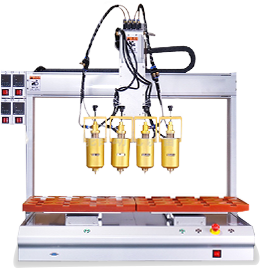

Built-in safety mechanisms: PTC protection, pressure relief valves.
High-quality separator materials: Prevent internal short-circuits.
Durable casing: Reinforced or vented for controlled gas release.
Designed for use in hazardous environments (mining, oil rigs etc.)
Why it is Explosion Proof?
1. Pressure Relief Vent
Built into the battery casing. If pressure builds up (from overheating or gas generation), this vent opens in a controlled way, releasing gases without rupturing violently.
2. PTC (Positive Temperature Coefficient) Device
A thermal fuse-like component. If the battery overheats, this increases resistance to limit current flow, preventing further heating.
3. CID (Current Interrupt Device)
When gas is generated inside the battery cell due to overcharging, short circuit, etc., leading to sudden increase in pressure, the CID cuts off the positive electrode path
by flipping the diaphragm or separating the weld point, forming an open circuit.
4. Thick, Sealed Metal Housing
Often stainless steel or aluminum alloy. Contains internal failure safely without sparking or cracking, meets ATEX / IECEx ratings for explosive environments.
5. High-Quality Separators
Prevent internal shorts by separating the anode and cathode. Made from materials that shrink less under heat or self-seal.
6. Thermal Stability (Cell Chemistry)
Many explosion-proof batteries use LiFePO₄ (Lithium Iron Phosphate), which has a lower risk of thermal runaway, or is more stable under abuse (overcharging, short circuiting, puncture).
Model: | 32700 |
Nominal Voltage: | 3.2V |
Nominal Capacity: | 6000mAh |
Rated Energy: | 19.2Wh |
Maximum Charge Voltage: | 3.65V |
Maximum Charge Current: | 10A |
Maximum Continuous Discharge Current: | 18A |
Maximum Peak Discharge Current: | 36A |
Discharge Cut-off Voltage: | 2.0V |
Charge Temperature: | 0~+50℃ |
Discharge Temperature: | -20~+60℃ |
Cycle Life (25℃, 0.5C, 100% DOD): | >4000 |
Weight: | 135g |